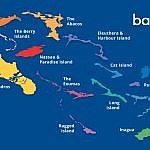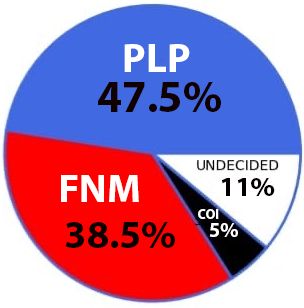The public health rules that dictate how cruise ships can operate in U.S. waters during the pandemic will become recommendations in mid-January, the Centers for Disease Control and Prevention said Monday.
Authorities replaced an earlier ban on cruise travel with a “conditional sailing order” in October 2020, which laid out steps cruise companies had to take to sail with passengers from U.S. ports. That order — which required ships to sail with at least 95 percent of people vaccinated or perform a test cruise to demonstrate safety procedures — was set to expire on Nov. 1.
Instead, the CDC will extend the order, with some tweaks, through Jan. 15. Those changes include new procedures for ships that come to U.S. waters after operating in other jurisdictions, new instructions for ships that want to switch from 95 percent of passengers vaccinated to a lower number and the end of required CDC travel advisories or warnings about cruising in marketing material.
“After the expiration of this temporary extension next year, CDC intends to transition to a voluntary program,” the agency said in a statement. “This transition will continue strong measures to detect, mitigate, and control the spread of covid.”
Peak Caribbean cruise season is coming. Here’s what to know before getting on board.
The statement said the CDC decided to temporarily extend the order because of the continued spread of the coronavirus delta variant.
Aimee Treffiletti, a captain in the U.S. Public Health Service and lead for the CDC’s maritime unit, said in an interview Monday that more information about the voluntary program would be announced in the future. She said she could not say whether the industry would follow the recommendations next year but stressed the importance of vaccinations.
“That’s one of the main reasons we haven’t seen medical systems overwhelmed on board, because we have such high vaccination rates on board,” she said. “I think that definitely should continue to be an essential part of the public health resources that we turn to for cruising.”
Cruise lines in the United States are requiring vaccination and testing before passengers board; some have extended that requirement at least through February.
The CDC declined to provide the number of coronavirus cases that have been reported on ships since cruising started again in the United States this summer, but Treffiletti said the measures in place had identified cases before passengers have boarded ships and once they were on, which allowed for isolation and contact tracing. She said outbreaks have not turned into sustained transmission, local resources have not been burdened by cases, and medical systems on ships haven’t been overwhelmed by illness.
“From the very beginning, we knew that cruising would not be a zero-risk activity,” she said. “That was never CDC’s goal or the cruise industry’s goal.”
Covid will find its way onto cruises. The critical thing is what happens next.
In its statement, the CDC said: “While cruising will always pose some risk of disease spread, CDC remains committed to ensuring that cruising is conducted in [a] way that protects crew members, passengers, port personnel, and communities.” The agency has given cruise ship travel a “level 3″ warning, which means there is a high level of covid-19.
Cruise Lines International Association released a statement highlighting the industry’s covid-19 mitigation measures and collaboration with the Biden administration. The statement did not say whether cruise lines will follow the recommendations in January.
“The health and safety of cruise passengers, crew members and destinations remain the industry’s highest priority,” the trade group said in the statement. “CLIA ocean-going cruise line members will continue to be guided by science and the principle of putting people first as we work with the administration and the CDC to expand on our progress and build additional confidence in cruising as one of the safest vacation options, during the pandemic and beyond.”
Cruise lines have been voluntarily following CDC rules for months. For ships sailing from Florida, a judge ruled the conditional sailing order should be considered a nonbinding recommendation following a lawsuit filed against the agency by Florida Gov. Ron DeSantis (R). That suit is ongoing, but cruise companies continued to follow the guidelines.
Treffiletti said voluntary compliance had been “very successful” since July 23, when the order became voluntary in Florida.
“There are a lot of really good reasons to, instead of using a legal order to enforce compliance … work collaboratively with the industry,” she said.
More from LOCAL
Sands cannot live without washed-up Ingraham. It’s so sad.
The Bahamas is once again being asked to suspend disbelief. We are being told that Duane Sands stands as an …
Recent Poll Shows Strong Confidence in PLP Leadership and Doubts About FNM Stability
A recent unscientific poll, conducted among Bahamians ages 18 to 60 in the "over the hill" area, shows the Progressive …
ZANE LIGHTBOURNE, MORE ACTION, LESS TALK.
In politics today, noise often masquerades as leadership. Grand speeches trend online. Manufactured outrage fills timelines. But in Yamacraw, residents …



















